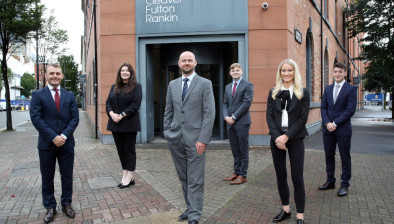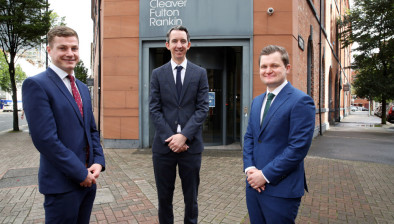Analysis: NI Court of Appeal upholds automatic British nationality for NI citizens

Nathan Campbell
Nathan Campbell and Laura Gooding of Cleaver Fulton Rankin consider a recent court ruling on nationality.
In a previous article, we covered the case of Re Ní Chuinneagain where the High Court did not accept that the conferral of British citizenship on the applicant, who was born in Northern Ireland and considered herself to be Irish only, was unlawful.
Since then Ms Ní Chuinnegain has now unsuccessfully appealed to the NI Court of Appeal. Her grounds of appeal were:
- Article 8 of the European Convention on Human Rights (ECHR) conferred upon her a right to respect for her status as an Irish citizen only.
- The automatic conferral of British citizenship at birth under section 1(1) of the 1981 Act interferes with her right to respect for private life since and continues to do so, in a disproportionate way, contrary to Article 8.
- Section 12 of the 1981 Act interfered with her right to respect for private life, contrary to Article 8, by requiring her [a] to recognise and accept the status of British nationality to which she objects and [b] to pay a fee of £371 to renounce her British citizenship.
The court’s findings
In dismissing the applicant’s claims, the Court’s reasoning largely echoed the previous decision in this matter:
- Firstly, the court rejected the argument that Article 8 protects the appellant’s right to respect her status of an Irish citizen only.
- Even if it did, the court determined that the applicant “…suffers from no inhibition in identifying herself as Irish and asserting her Irish citizenship exclusively; a British passport was not thrust upon her at any stage of her life and she has no obligation to possess one….” Ultimately, it was not accepted the measure impacts “the beliefs or identity which she espouses or their development; and she has been free to reject all aspects of her British citizenship from the age when she first chose to do so.”
- Even if points 1 & 2 are not correct, then the court determined that the 1981 Act is a proportionate means of securing a legitimate aim, given Northern Irish born persons are not considered automatically Irish.
- The court considered the correct reading and practical application of Section 12 of the BNA does not conflict with Ms Ní Chuinnegain’s right to respect for private and family life.
Choice was cited as the rationale underpinning s.12, operating as a tool for those born in Northern Ireland to be “…accepted as Irish”, should they choose to identify as such. The court did not give weight to the argument that applying to renounce British citizenship accompanied by the cost of £371 established any interference with the appellant’s rights under Article 8 ECHR.
Comment
As was the case with De Souza, the decision in Re Ní Chuinneagain [2022] has once again brought the issue of identity in Northern Ireland to the fore.
Creating an alternative to automatic British citizenship for Northern Irish citizens would not be straightforward. How would an infant born in Northern Ireland provide consent to being either British or Irish? Perhaps a legal guardian on their behalf, yet what would happen when the child is grown? At what age are they then considered to have capacity to reverse or affirm their guardian’s decision? What would the position be immediately after the birth of the chid, would the child be stateless?
While the requirement for Northern Irish citizens to renounce British citizenship and pay the administrative fee to identify exclusively as Irish in law was found not to violate the applicant’s Article 8 rights, it has been suggested this dilutes the GFA’s “spirit” in recognising British, Irish or dual identity in Northern Ireland. Perhaps a reasonable compromise could be to waive the fee for Northern Irish citizens.
Given the sensitive nature of the topic, if there is to be any change to the status quo it seems likely that this will most probably come from political pressure rather than the courts.

- Nathan Campbell is an associate and Laura Gooding is a paralegal, both at Cleaver Fulton Rankin.









